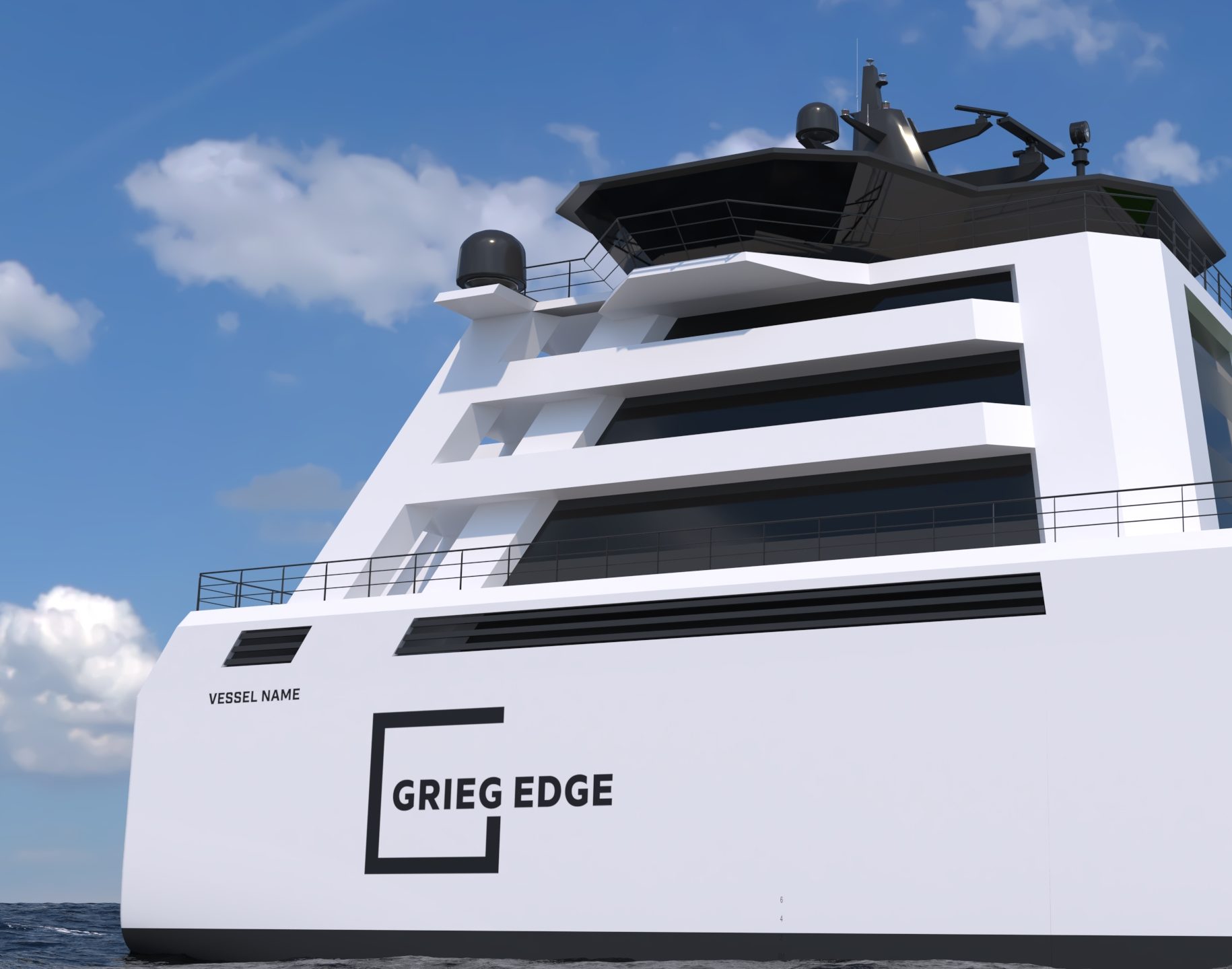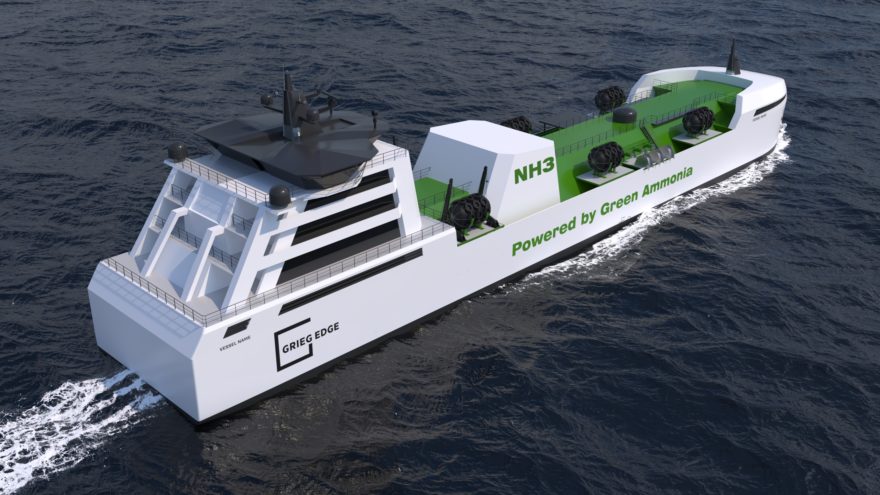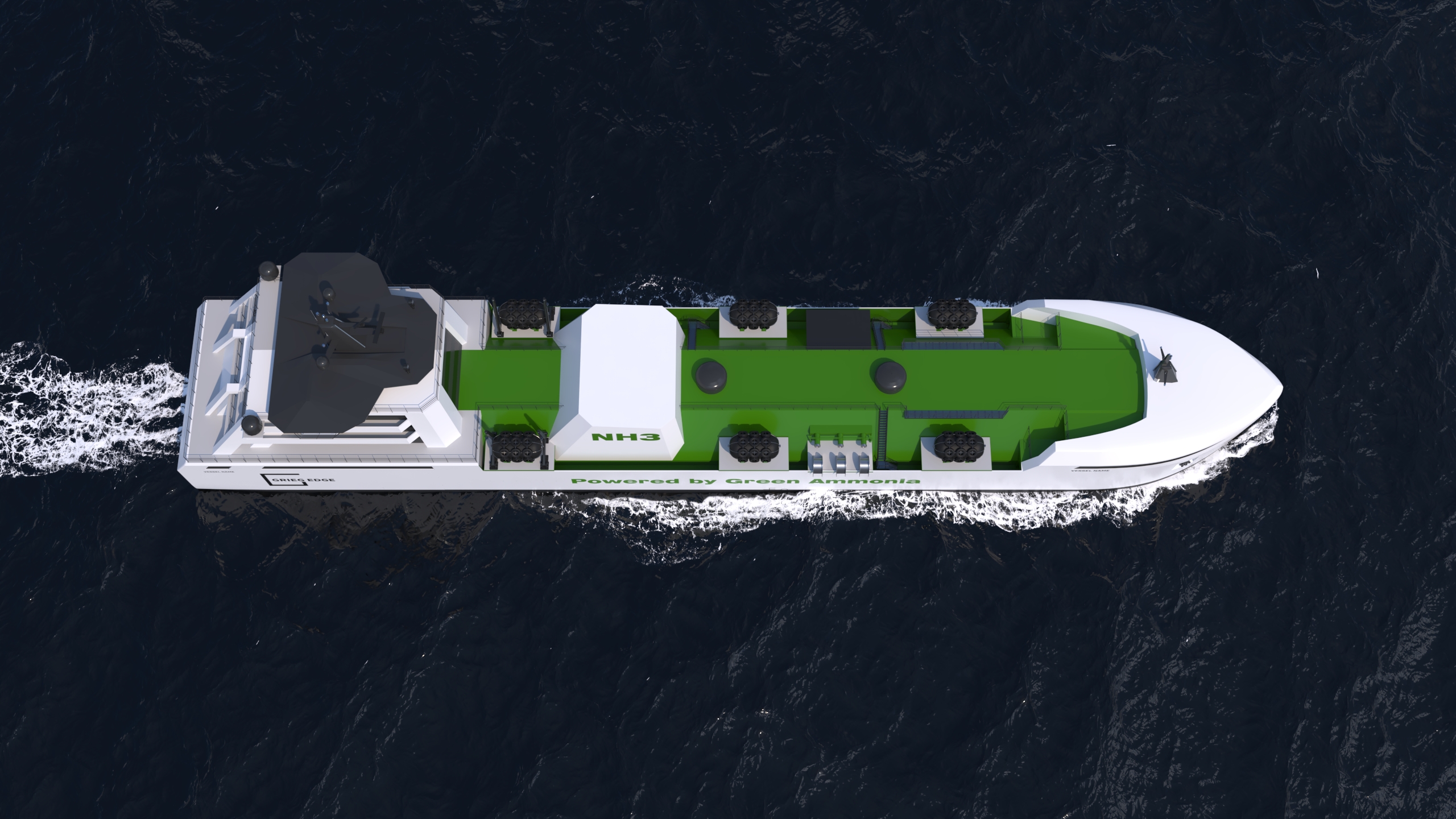

Grieg Edge’s projected green ammonia fueled tanker got Approval in Principle by DNV last Friday. The next steps are developing the market and detailing the ship’s design.
MS Green Ammonia got the Approval in Principle (AIP) last week based on the work done by LMG Marin, Wärtsilä and Grieg Edge. That means that the design we have developed is feasible. No significant obstacles exist to prevent our concept from being realised. The illustrations and videos on this page show the latest design by LMG Marine.

“Getting the approval was not unexpected, but still something we are happy to announce. It is an major milestone in getting one of the first green ammonia fuelled vessels in operation,” says Head of Grieg Edge, Nicolai Grieg.
The MS Green Ammonia is a projected green ammonia tanker that will also run on green ammonia. The tanker is a part of the larger Berlevåg-project in the north of Norway: a group of Norwegian companies intends to use wind from Raggovidda to produce green ammonia (link). The project is a result of the ZEEDS initiative. MS Green Ammonia is a vital part of this project, ensuring the transport of the green ammonia from the factory to land storage facilities along the Norwegian coast. The new tanker will also be able to handle ship-to-ship bunkering.
The 120 m long tanker will have a cargo capacity of 7500 cubic meters of ammonia. It will be able to load up to 1000 cubic meters per hour. The engine will be a Wärtsilä W25DF ammonia engine.

The next steps will be to further detail the ship’s design and initiate the yard tender process. Technically, we are ready to realize the project in 2025. We continue to work on the commercial aspects, developing the value chain and getting end consumers to commit.
“To ensure a quick transition in shipping, we need policy makers to support the development of a market for alternative fuels. We need arrangements to reduce the OPEX gap between clean and carbon-rich fuel, such as differential contracts,” says CEO of Grieg Maritime Group, Matt Duke.